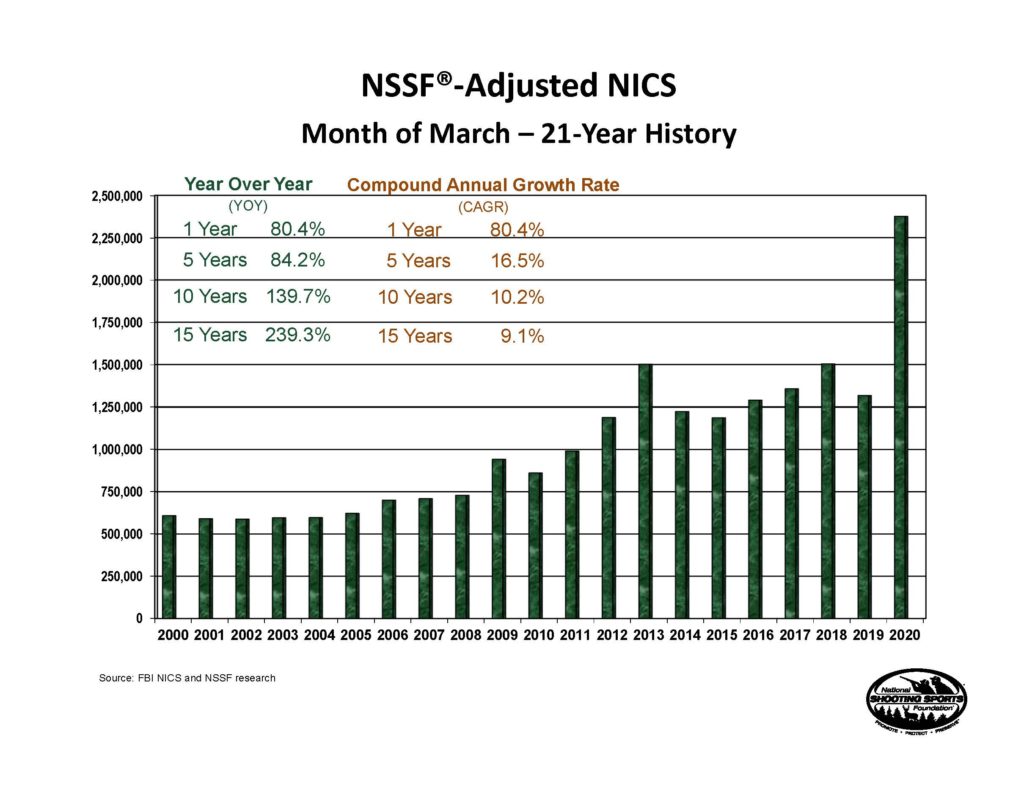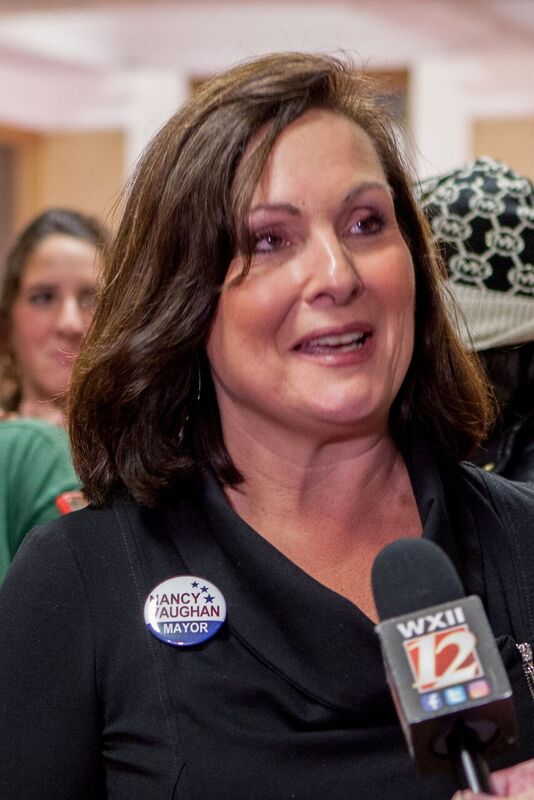The National Shooting Sports Foundation released their NSSF-Adjusted NICS checks report for March 2020. It shows an 80% increase over March 2019!

The March 2020 NSSF-adjusted National Instant Criminal Background Check System (NICS) figure of 2,375,525 is an increase of 80.4 percent compared to the March 2019 NSSF-adjusted NICS figure of 1,317,114. For comparison, the unadjusted March 2020 FBI NICS figure 3,709,562 reflects a 42.4 percent increase from the unadjusted FBI NICS figure of 2,604,927 in March 2019.
Please note: Twenty-five states currently have at least one qualified alternative permit, which under the Brady Act allows the permit-holder, who has undergone a background check to obtain the permit, to purchase a firearm from a licensed dealer without a separate additional background check for that transfer. The number of NICS checks in these states does not include these legal transfers based on qualifying permits and NSSF does not adjust for these transfers. Recently, the states of Alabama and Michigan had law changes that affected their Brady Law standing which removed qualifying alternate permits usage for firearm transactions. These changes went into effect July 22, 2019 for Alabama and March 3, 2020 forMichigan. In March 2020, Alabama state’s NSSF-adjusted NICS was 212.1 percent higher than March 2019, which accounts for an additional 41,348 checks over this time last year. March 2020 NICS numbers for Michigan were up 210.8% over March 2019 and account for an additional 57,599 checks.
The NSSF adjusts the gross number of NICS checks to subtract out checks that are used by states for issuing permits such as concealed carry permits and permit rechecks.
It should be noted that there is not a 100% direct correlation with firearm sales as there are states which have substitutes for the NICS check and a NICS check isn’t performed on that sale or purchase. Moreover, if one is purchasing multiple firearms at the same time, a single NICS check will usually suffice. Of course, in many free states, no check of any sort is done on private sales regardless of the type of firearm.
What this increase shows, in my opinion, is that there are a lot of people waking up and realizing that they must be responsible for their own safety and that of their family. One would hope that many of these new firearms owners – especially those who had to jump through all sorts of hoops and waiting periods – will now become Second Amendment advocates.

